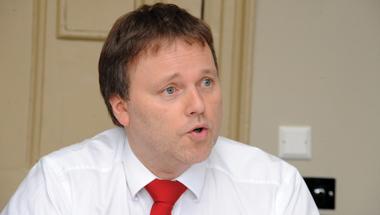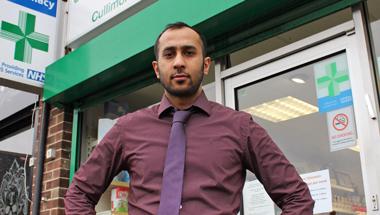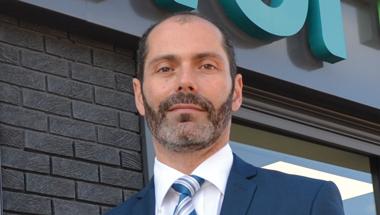Should pharmacists go on strike?
The case for taking a militant stance against the 6% funding cut
On Tuesday September 30, 2014, French pharmacies closed their doors to the public. It was an act of protest. Faced with the government’s threat to allow medicines into general retailers, the profession felt compelled to make its voice heard. The message was simple: we will not go down without a fight. If the government doesn’t appreciate our value, then we will demonstrate just how vital we are. The strike was widely deemed a success – only 10% of the country’s pharmacies opened and the economy minister Emmanuel Macron started to back down from the proposals on the same day.
Here on the other side of the channel, pharmacists tend to be less militant. The profession has got used to doing more for less, all while taking it on the chin. The typically diplomatic Pharmaceutical Services Negotiating Committee (PSNC) has branded recent funding settlements “fair” given the financial squeeze across the NHS.
But the decision to cut pharmacy funding in England by 6% in October – announced by the government just before Christmas – has heralded a sea change in attitude. PSNC slammed the “unprecedented” funding cuts as a “clear threat” to the sector. And for the first time, pharmacists decided to take collective action against the government squeeze. One pharmacist started a petition against the funding cut, which, at the time C+D went to press, had more than 10,500 signatures – passing the threshold that demands a government response. Others are calling for even more drastic action in the form of a strike. So is it time for the sector to down its tools and become more militant?
‘One small step’ for pharmacy
It was on Christmas Eve that Paul Mason, chair of Barnsley LPC, decided to set up a petition against the funding cuts. He was speaking to colleagues about the announcement – “generally moaning and groaning” – and conversation turned to potential forms of action. They wanted a way to harness the widespread discontent with the government’s decision and communicate a clear message: enough is enough. A petition seemed the best way forward and, five days later, Mr Mason posted one on the UK government website.
The move clearly highlighted the depth of feeling in the sector. The petition rose to become one of the most popular on the website within the “first three or four days”, Mr Mason remembers. In less than two weeks, it passed the 10,000-signature mark, which leaves the government no other option than to respond.
|
|
“It is obvious that senior pharmacists in government just do not understand how community pharmacy works" Mark Koziol, chair, Pharmacists' Defence Association |
Mr Mason hopes the sheer volume of support will make a difference. “If nothing else, I would like to think it will open the eyes of pharmacists and staff to the threats the cuts pose,” he says. “It will provide a mandate for [lobbying group] Pharmacy Voice and the like to be quite robust with the government.”
But he acknowledges the petition is just “one small step” towards making the government listen to pharmacy. Mr Mason believes the sector needs a wholesale change in attitude to be considered on a par with nurses and doctors. “We see from other professional groups in the NHS [that] the ones who seem to get a better deal are the more militant ones,” he says.
Action, not words
So do pharmacists need to follow in the footsteps of junior doctors and go on strike? Numerous C+D readers mooted the idea when the funding cuts were first announced. And Hassan Khan, owner of Cullimore Chemist in Edgware, can see why. At the age of 28, he is already looking to get out of pharmacy due to the financial pressures.
Mr Khan believes a strike is the only way to raise awareness of these pressures, which the public are largely “not aware of”. It is undeniable that, while the proposed junior doctor contract strike regularly makes the headlines, the cuts to pharmacy funding have been absent from the national media. Strike action would make pharmacy’s voice heard and galvanise support from the public, who would realise the sector’s value, he says.
Mr Khan worries the profession is seen as “weak” compared to others in the NHS. “What I don’t understand is why the doctors can stand together and call for strike action and we can’t,” Mr Khan says. Part of the blame, he feels, lies with the fragmented nature of the sector. If independent contractors decided to go on strike, he asks, would the “corporates” agree to shut their doors as well?
But mostly, Mr Khan attributes the blame to a lack of united leadership. The sector needs a body such as the British Medical Association (BMA) “with a bit of a backbone”, he argues. Instead, he feels there are too many pharmacy associations that have, as yet, failed to challenge the government with one united voice. “We need someone to stand up with a bit of leadership and say, ‘enough is enough’, and call for strike action,” he argues.
One voice
Mr Khan’s point will undoubtedly resonate with many pharmacists. Pharmacy bodies have faced their fair share of criticism in the past for being fragmented and failing to work collaboratively. But it seems things are changing, if their response to the funding cut is anything to go by. Pharmacy Voice – a representative of both independents and multiples – will be working with the Royal Pharmaceutical Society (RPS), the Association of Pharmacy Technicians UK and the General Pharmaceutical Council, among others, to consult with the government on the proposals.
All of these organisations appear to be in favour of talking tough with the government, rather than proposing strike action. Pharmacy Voice is “confident” it can influence the government to see its point of view, while the RPS will join it in making the case for “improved patient access to high-quality care, advice and medicines” through an increase in funding.
|
|
“Management mentality in the NHS always seems to be, if they're coping, let them get on with it" Bill Beeby, deputy chair, BMA clinical and prescribing committee |
The typically more militant Pharmacists’ Defence Association (PDA) is also in favour of dialogue at this stage. Chair Mark Koziol says the government “just doesn’t understand how community pharmacy works” and still struggles to see beyond the supply function. But he believes that “far and away” the best way to address this misconception is to present pharmacy as a solution to the “dire shortage of GPs” rather than shutting up shop. “I believe that, with strong leadership, both independents and group practices of individual pharmacists will be able to deliver this vision within a relatively short period of time,” he says.
Another way
To some, this emphasis on dialogue may feel like something of a cop-out. After all, doctors seem to take industrial action much more readily. Just four years ago, the BMA led a strike over cuts to GP pensions. The strike proved ineffective in swaying the government on this particular issue – prompting the profession to criticise the BMA for “failing as a trade union” – but may have established GPs as a force to be reckoned with. At the time when pharmacists received the news of funding cuts, GP practices were promised a 4% funding boost every year until 2021.
Bill Beeby, deputy chair of the BMA's clinical and prescribing committee, says strike action is sometimes necessary. “When it gets to the point where there’s an impact on patient care, you do have to take a tough stance,” he says. “Otherwise management mentality in the NHS always seems to be, if they’re coping, let them get on with it and give them more work.” But Dr Beeby points out that industrial action isn’t the only – or necessarily the best – way of taking a stand. He stresses that there are alternative measures available to show the NHS that you won’t be walked over.
One of these measures could be withdrawing free services, suggests Jay Badenhorst, managing director of Whitworth Chemist – although he is keen to stress that he is not speaking on behalf of his employer. The cuts could push some pharmacies into closure and services such as free delivery of prescriptions, which has resulted in many “life-saving interventions”, may no longer be viable, Mr Badenhorst explains.
Refusing to provide these services could be a “much more powerful” starting point for negotiations with the government than a strike, he says. Plus, it would avoid the risk of breeding resentment among patients. “If pharmacy decides to go on strike and closes its doors, the impact on patients would be massive and pharmacy would be seen as contributing to patients being worse off,” he warns. But whatever action pharmacy decides to take, his crucial point is this: “We need to be very united and strong and have one message.”
This appears to be the crux of the matter. Pharmacy can no longer afford to be split between the independents and multiples, or the service-ready versus the service-reluctant. Perhaps English pharmacies can learn something from French counterparts: not necessarily by going on strike, but by forming one united voice to demonstrate its value. The apparent collaboration between the pharmacy bodies suggests this vision may well be on its way to becoming a reality. And, as a collective, the sector should command the attention it rightly deserves from the government. Vive la révolution.
Should pharmacists go on strike?
|
Yes - Hassan Khan, owner, Cullimore Chemist, Edgware “We need a body to stand up with a bit of leadership |
No - Jay Badenhorst, managing director, Whitworth Chemist “I think going on strike would possibly be the worst
|
More funding cut news...
Funding cuts equivalent to 12% 'net' loss over 6 months







